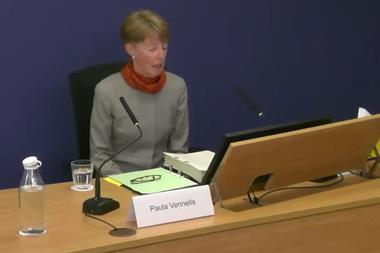Last year Booker bought Musgrave GB, bringing Londis and Budgens into its retail network and boosting its buying power. C-Store investigates how the buyout has impacted retailers more than 12 months on
When Booker completed its purchase of Musgrave GB in September 2015, it was widely hailed among retailers. The acquisition brought the Budgens and Londis brands into the wholesaler’s ownership, meaning approximately 1,800 new stores joined Premier, Family Shopper and unaffiliated cash and carry retailers as its customers. Consolidation, many retailers argued, was exactly what the industry needed to drive down costs and enable independents to compete with the multiples.
Arjan Mehr, a Londis retailer in Bracknell, Berkshire, summed up his optimism at the time: “There are two things a symbol operator needs in the current market: scale to negotiate the best price; and a healthy balance sheet. Booker has now got both. They can now deliver the support that all members will require to compete in the ultra-competitive market.”
A year on and the prevailing mood among retailers and Booker itself is still upbeat. In October chief executive Charles Wilson said the group was “bang on track” with the integration of Londis and Budgens, with retail sales and profits up and customer satisfaction improving. It claimed that the two fascias were turning around from a 20% decline 12 months previously to 15% growth.
The most obvious tangible change for Budgens and Londis retailers was access to the Euroshopper, Happy Shopper and Farm Fresh brands. In addition, C-Store understands that significant developments in the fresh range will be revealed in 2017.
For Premier retailers, a 20-store trial is under way in which stores are supplied through the Londis supply chain, which Booker claims has led to a 50% increase in fresh food sales in the first six weeks. The service is expected to roll out to the rest of the estate next year.
The Londis experience
All retailers C-Store has spoken to were positive about the integration in the wake of the buyout. “Booker has delivered on what it promised. Management have been focused in driving out costs and our margins are up 2%,” says Ramesh Shingadia, who owns two Londis stores in West Sussex.
Jatinder Sahota, of Max’s Londis on the Isle of Sheppey, Kent, says the takeover has been a win-win for him and his customers. “Our offer has got a lot better, and there’s a lot more volume. The feedback from our customers is they’re happier with the own brands Happy Shopper and Euroshopper - we were crying out for a good own brand. The lower prices mean we can be more competitive, but our margins haven’t suffered too. Promotions are also great value.”
Farm Fresh has brought consistency to produce, adds Jag Brar, of Londis Cricklade in Wiltshire. “We were sourcing locally before we got the quality we needed from Booker. The quality and value is good with Farm Fresh. I go to the cash and carry twice a week, too, just to reduce wastage, but it’s still Farm Fresh products. We get more control that way.”
Jatinder says Musgrave had made a lot of improvements on fresh, but range is just as good with Farm Fresh and the other own brands. “But I’m hoping for continued improvements in the fresh offer, that’s where the growth is.”
Booker also provides “excellent” customer support, he asserts. “They’re always there when you need them, I feel like I’m in really safe hands, and I get continued support from my BDM. I had a store visit from [chief executive] Charles Wilson and [managing director retail] Steve Fox, and I’m really impressed that they’ve delivered on their promises.”
Jatinder also rates the Spend & Save scheme, which enables retailers to use cash and carries and still accrue savings. Adam Moody, a Londis retailer in rural Northumberland, enjoys the simplicity, too: “Musgrave had lots of hurdles to overcome in order to get loyalty payments, but the Spend & Save scheme is much more straightforward.”
The Budgens experience
Spend & Save is also better for cash flow, with payments delivered monthly as opposed to quarterly under Musgrave, says Vince Maloney, who owns three Budgens stores in Surrey and Berkshire. Vince echoes the Londis retailers in his positive assessment of the integration, which has “gone much better than I expected”. He says sales have not risen, which is due to local attrition rather than the fault of Booker. But crucially margins are much healthier, enabling him more breathing space.
One of the crucial differences under Booker is the flexibility and autonomy he is now afforded as an independent Budgens retailer, Vince asserts. “There’s a lot more flexibility now, it’s about 75% loyalty compared with 95% before. This means I’ve been able to stock more local products and drive a harder bargain with suppliers by sourcing more from them. We can also source directly from Country Choice for food to go so we get a slightly better margin.”
David Knight, who owns two Budgens stores in West Sussex, agrees. “We’ve been given the freedom to retail, which is the first time for a long time. We’re able to play with the offers, we’ve expanded specialist areas such as gluten and dairy free, and vegan, which is huge. There’s been a big sales rise in those categories,” he says. “We’ve been able to negotiate discount based on volume with other suppliers, such as with premium grocery wholesaler DW Holley.”
Both retailers are pleased with the support they receive from reps. “We’re left alone to run our own businesses, but we get the support when we need it,” says Vince.
David adds that he can be more open and honest with reps than he could before. “With Musgrave the rep role was about putting the Budgens brand first, now it’s more collaborative. They’ll talk about opportunities we’re missing. We can talk openly about where we want to take the store, even if it’s not loyal to Booker. It’s a breath of fresh air. Charles Wilson’s philosophy is that if the retailer’s successful, then Booker’s successful, too.”
Vince and David agree that Booker needs to work on its fresh range, which they are confident will happen in the new year. “There are 15% fewer lines in produce than under Musgrave, and dairy and ready meals need expanding, especially with people doing more top-up on fresh now,” Vince says.
Premier and Family Shopper
For Premier and Family Shopper retailers the impact of the takeover was not so immediate, but no less positive for that, according to Dan Cocks, of Premier Whitstone Stores in Devon. “There haven’t been any day-to-day material effects at the moment. From what I can see things are in development which will benefit us later on, such as the fresh trial up north.”
Sam Coldbeck, of Premier Wharfedale in Hull, is one of the trialists and says the initiative is going “really well” at her store. “We’ve always wanted to see an improvement in chilled and frozen. Previously, we had four suppliers so this is much more manageable, and sales are up from about £1,300 a week to £2,400. Margins are much better now, too, and there’s breathing space for waste.”
But the key for Dan is that Booker is “looking at the bigger picture”. He adds: “The obvious gains are in terms of the size of Booker, and as a result suppliers are taking Premier seriously now. A few years ago reps didn’t take you seriously, as a Premier retailer, but now they want to do business with you. There’s a general perception that Booker is no longer just a cash & carry operator, and that message has got through to manufacturers, who are taking us more seriously.”
Mos Patel, of Family Shopper in Ashton-under-Lyne in Greater Manchester, says he hasn’t noticed any changes yet, but expects Booker to “gradually migrate the ranges or remove some lines”.
But not everyone is pleased. David Peacock runs an 800sq ft Premier store in Romsey, Hampshire, but is in the process of switching to Best-one. “In my opinion Booker has only gone downhill this year: it’s delisting lines and leaving a very poor retail range in my eyes - compared with Batleys’ range which is much better. In every section I can get more products from Batleys than I can at Booker.” In response, Booker’s Steve Fox says it is focusing its efforts on the ‘Core in Every Store’ range of best-selling lines, which account for 65% of convenience sales and can increase sales by 15%. “We have also seen our most consistent year ever regarding availability and have really focused on the most important products for our customers to better serve them,” he adds.
Looking ahead
However, other retailers are reassured by Booker in these increasingly uncertain times. Many expect food prices to rise next year due to Brexit, adding pressure in an ever-competitive market. “It has given us more confidence regarding future food prices,” says David. Dan says Booker’s extra clout with suppliers means it will hopefully avoid any ‘Marmite-gate’ type scenarios played out by Tesco and Unilever in the autumn. Jatinder agrees: “The slowing growth of Aldi and Lidl shows how fickle the market is, while Brexit and the sugar tax only add to the unpredictability. But with Booker behind us, we’re in safe hands.”
Premier to Londis
Switching fascias
Retailers now have the option to switch symbol group but stay within the same retail family with all its perks and familiarities. Premier store owner Raaj Chandarana (pictured left) is doing just that by opting to switch to Londis. He believes he will be able to offer a greater fresh and chilled offering while continuing to offer his customers the Happy Shopper and Euroshopper brands. “I’ll have a bigger range under Londis and I’ll be able to benefit from their retail nous. I’ll be getting fewer deliveries a week but I can plan my resources better,” he says. “Also, I’ll still be able to get access to Spend & Save.”
Under Musgrave he would never have considered switching to Londis, Raaj insists. “It’s much easier to retail with Booker, you buy a product and sell a product, whereas Londis retailers told me how complicated it had become with Musgrave; there were so many forms to fill in.”
His Tara’s News store in High Wycombe is undergoing a refit and modest extension, but he is unsure if he’ll receive any financial support. He points out that it is early days, though. “Everyone has to be patient. But there are good times ahead, Booker is stronger for the buyout. And I’ve inherited more retailers in my network so we are like a big family now.”
Store numbers
The symbol network
Premier: 3,300 stores. More than 300 recruits since April with more than 100 coming from symbol competitors.
Londis: 1,900 stores. Some 600 recruits since April with more than 400 coming from symbol competitors
Budgens: 190 stores. Some 70 recruits since April, including a new Warner’s Budgens store in Winchcombe, Gloucestershire (pictured) and new customers joining from “our main symbol competitors”
Family Shopper: 50 stores.
“Family Shopper continues to grow over the year and will benefit a lot from the Booker Retail Partners integration in 2017,” says Steve Fox, managing director for retail, Booker.
Source: Booker























1 Readers' comment